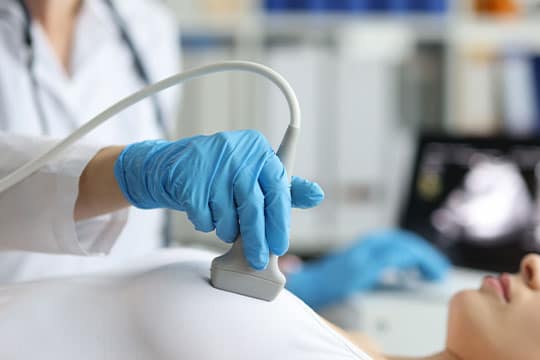Home > Disease and Treatments > When Gallstones Turn Serious: Symptoms, Surgery, and Recovery Explained
When Gallstones Turn Serious: Symptoms, Surgery, and Recovery Explained
Gallstones are a common digestive condition, and in many cases, they don’t cause any symptoms or complications. In fact, a large number of people have gallstones without ever realizing it. However, there are times when these seemingly harmless stones can lead to severe pain, infections, or even require surgery.
Understanding when gallstones become a medical concern can help you act early and avoid serious complications. This article walks you through how to recognize the symptoms, what treatment typically involves, and how recovery works after gallbladder surgery.
What Are Gallstones?
Gallstones are solid deposits that form in the gallbladder a small organ located beneath the liver that stores bile. Bile helps digest fats, and when its composition becomes imbalanced, substances like cholesterol or bilirubin can harden into stones.
There are two main types:
- Cholesterol gallstones – the most common, formed primarily from cholesterol
- Pigment gallstones – smaller, darker stones made from excess bilirubin
When Do Gallstones Become a Problem?
Most gallstones are “silent” and don’t require treatment. But when a gallstone blocks the bile duct, it can lead to pain and other complications. This condition is known as biliary colic and may be a sign that the stones are becoming serious.
Symptoms That Shouldn’t Be Ignored
If you experience any of the following, it may be time to seek medical attention:
- Sudden pain in the upper right abdomen or middle of the stomach
- Pain that spreads to the right shoulder or back
- Discomfort after eating fatty or heavy meals
- Nausea or vomiting
- Fever and chills
- Yellowing of the skin or eyes (jaundice)
These symptoms can indicate that the gallstones are obstructing the bile ducts or causing inflammation and in such cases, prompt diagnosis and treatment are crucial.
Complications That May Arise
Without treatment, gallstones can lead to conditions such as:
- Cholecystitis – Inflammation of the gallbladder
- Pancreatitis – Inflammation of the pancreas caused by a blocked bile duct
- Cholangitis – Infection of the bile ducts
- Gallbladder rupture – A rare, but potentially life-threatening emergency
When Is Surgery Recommended?
If gallstones are causing frequent or severe symptoms, doctors may recommend surgery to remove the gallbladder — a procedure known as cholecystectomy. The gallbladder is not essential for digestion, so removal typically does not affect long-term health.
The most common and preferred method is laparoscopic surgery, which involves small incisions and offers quicker recovery, less pain, and minimal scarring. In more complicated cases, an open surgery may be necessary.
Surgery and Recovery: What to Expect
Before Surgery
- You’ll undergo imaging tests like ultrasound or CT scan
- A pre-surgical evaluation will ensure you’re ready for anesthesia and surgery
During Surgery
- Laparoscopic gallbladder removal generally takes about 1–2 hours
- Most patients can go home the same day or within 24 hours
After Surgery
- Recovery is usually quick, with most returning to normal activities within 1–2 weeks
- A low-fat diet is recommended for a few weeks
- The liver continues to produce bile, so digestion remains largely unaffected
Expert Care at Royal Care Hospitals
When it comes to gall bladder care, Royal Care Hospitals offers advanced diagnostic tools and surgical expertise to ensure the safest and most effective treatment. Our multidisciplinary team includes experienced gastroenterologists, surgeons, and post-operative care providers dedicated to deliver personalized care at every stage of your treatment.
With minimally invasive options and patient-focused recovery plans, we ensure faster healing and better outcomes.
Gallstones may start out silent, but when symptoms appear, they should never be ignored. Timely medical care can prevent complications and help you return to your routine quickly and safely.
If you’re experiencing signs of gallstones or looking for expert guidance, Royal Care Hospitals is here to support you with comprehensive, compassionate care. To schedule a consultation or learn more about treatment options, contact us today.
Appointments must be made 24 hours in advance.
Book an AppointmentRECENT BLOGS

While breast cancer affects millions of women worldwide, not all breast cancer is the same...
Read More
Lung cancer remains one of the most challenging health concerns globally but the good news...
Read More
The word "overdose" implies there's a known, safe dosage for a drug. It's not just about t...
Read More
